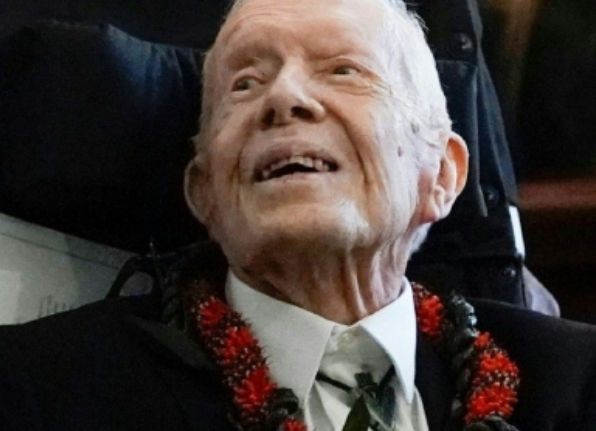For years, visitors pulled into the parking lot of Maranatha Baptist Church in rural Plains, Georgia in the wee hours to queue in the pitch black for Jimmy Carter’s Sunday school class.
Some were Christians, some were not. Many were Americans, while a substantial number came from other countries — Brazil, Canada, Russia. If evangelical Christianity was not their thing, it didn’t really matter.
Carter’s death Sunday at age 100 marks not just the passing of a former US president whose single term was defined by an unshakable Christian faith.
It is also a farewell to a leader whose deep evangelical roots and liberal politics are seemingly antithetical in today’s America.
Carter — a Democrat, Baptist and peanut farmer — was elected in 1976 on the heels of the Vietnam War and Watergate scandal, which saw Richard Nixon resign the presidency rather than face near-certain impeachment.
The Gospel-loving, “born again” Christian was the antidote to America’s woes.
“Casting a ballot for Carter, the redeemer president, would expunge the voters’ sins and absolve them of complicity” in Nixon’s rise, historian Randall Balmer wrote in “Redeemer,” a Carter biography focused on religion.
Carter said Christian tenets such as justice and love were the bedrock of his presidency.
We never dropped a bomb, we never fired a missile, we never shot a bullet to kill another person,” he said in the 2020 documentary “Jimmy Carter: Rock & Roll President,” citing his own “religious commitment to the Prince of Peace.”
While Carter was busy brokering the Camp David Accords between Israel and Egypt and grappling with the Iran hostage crisis, however, a powerful new force emerged in American politics: the religious right.
©CDA news





